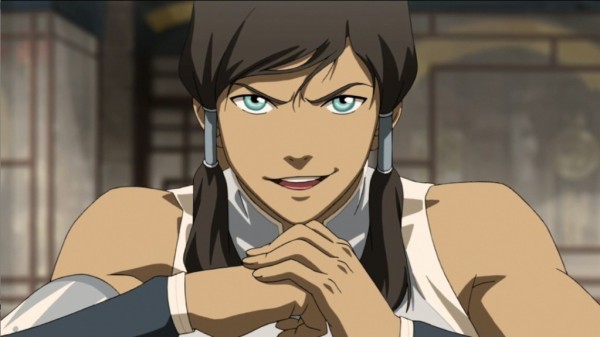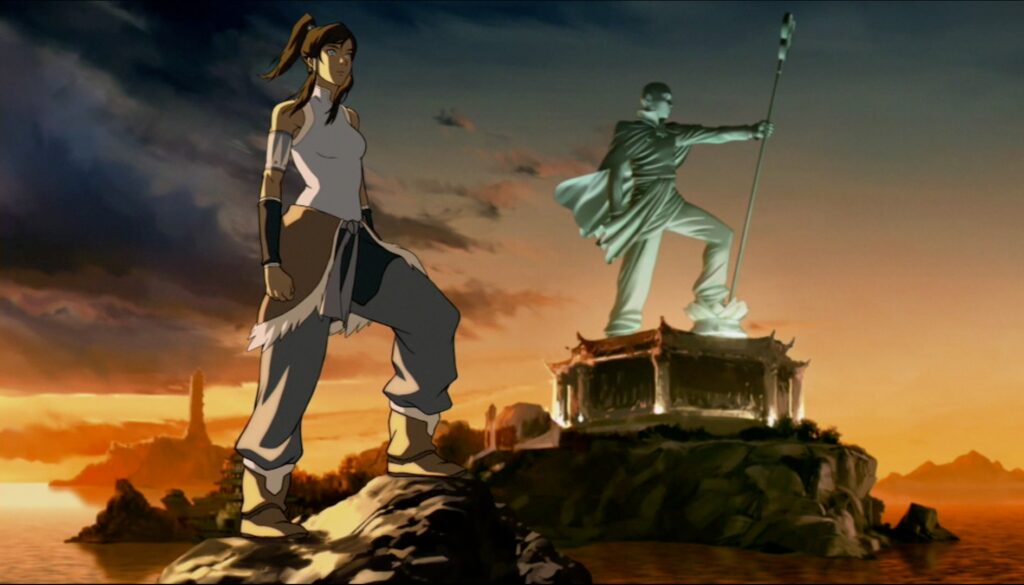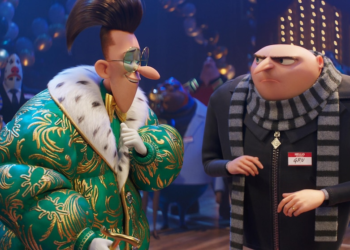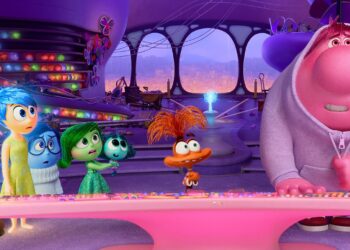*This is a user-submitted post by Jordan Hashemi-Briskin*
When a movie or TV series captures the public imagination, it’s inevitable that audiences will want to see more. However, the biggest problem in creating sequels is striking a balance between the new and the familiar, expanding on the lore while staying true to the spirit of the original. Sequels rarely even come close to matching their predecessors, but even if they don’t, they can still be satisfying experiences in their own right. Perhaps no property demonstrates this better than The Legend of Korra (2012-2014), which continues the story of Avatar: The Last Airbender.
Seven decades have passed since the end of the Hundred Year War. The Fire Nation colonies in the northwestern Earth Kingdom have since been consolidated into a new country, known as the United Republic of Nations, where people from all over the world—benders and non-benders alike—can live together in harmony. After spending the intervening years working to restore balance and peace to the world after the war, Avatar Aang has passed on and reincarnated in Korra, a feisty and headstrong young woman from the Southern Water Tribe. The series follows Korra as she learns what it means to be the Avatar in a world that has changed in profound ways.
Before I began watching in preparation for this review, I heard and read much fan debates as to how The Legend of Korra holds up to The Last Airbender. One particular point of contention is the character of Korra, herself: A fair number of viewers seem to resent that the creators tried so hard to make her the direct opposite to Aang; while the latter was a gentle soul reluctant to take on such great responsibility, the former leapt at the call and initially tends to charge into situations without thinking. While it’s true that her cocky self-assurance and bullheadedness won’t suit everyone, I personally think that this difference in temperament helps to reinforce that, while possessing tremendous supernatural power, the Avatar is, first and foremost, human; plus, Korra visibly matures over the course of the series as she comes to terms with the responsibility that her station entails. To paraphrase some fans: “Aang was a diplomat when the world needed a warrior; [his] journey was about becoming like Korra—assertive, strong-willed, and confident. Korra was a warrior when the world needed a diplomat; [her] journey was about becoming like Aang—compassionate, wise, and understanding.” As such, I consider her to be a great lead, and I don’t think she deserves the negative criticism she frequently gets.

That said, I must admit that this series’ flaws are more noticeable than its predecessor’s. For starters, while Korra is a compelling character from the outset, it took me a bit longer to warm up to some of the other new faces. In particular, Bolin comes across as being like a jokier version of Sokka, without nearly as much depth as the latter character; Mako’s personality is sorely underdeveloped; and Aang’s grandson Meelo just barely avoids crossing the line into downright irritating. On another note, I agree with some viewers’ sentiment that the first season ought to have focused more on the inequalities between benders and non-benders in Republic City, instead of Korra’s time as a pro-bender, as that would have lent the conflict with the season’s arc villain, Amon, much more weight. And as far as the nature of the love triangle between Korra, Mako, and Asami—well, the less said, the better. Fortunately, the other new characters are largely well-handled, and the appearance of old friends from the first series—Katara, Toph, Zuko, and Iroh—helps lend a sense of continuity to the story. (Speaking of continuity, I greatly appreciated the addition of the origins of the Avatar Cycle, as it brings home the importance of the Avatar’s role in maintaining balance in the universe.)
From a narrative perspective, The Legend of Korra does a good job of illustrating how the world changed following the Hundred Year War; from the establishment of the United Republic and the decline and subsequent overthrow of the Earth Kingdom monarchy, to the mounting tensions between humanity and the spirits, it reminds us that time stands still for no one and nothing, so society must adapt in order to survive. The social issues raised in each season also resonate very strongly, as they mirror the ongoing struggle for true equality and justice in our world. That said, the series is careful to stress that even the best intentions can be led astray, as evidenced by the roster of enemies that Korra faces on her journey; they sought to improve the world, but in the end, their methods did more harm than good. Even then, as long as there are those who are willing to learn from the mistakes of the past, a better future is still possible.

So, to recap: Is The Legend of Korra as polished as The Last Airbender? No, it isn’t. Certain characters could have been handled more delicately, and certain plot threads were not given enough attention. Nevertheless, it expands on the Avatar mythos in an organic and believable way and features a compelling protagonist who learns the full impact of her role as a mediator and strives to lead by example. All things considered, it’s a worthy continuation of one of the greatest animated TV shows of all time.
What are your thoughts about The Legend of Korra? Is it a worthy sequel to The Last Airbender? Let us know in the comments!
Edited by: K. Conley


![[SERIES REVIEW] ‘The Legend of Korra’](https://www.rotoscopers.com/wp-content/uploads/2021/09/legend-of-korra-netflix-1233162-1-750x375.jpeg)




